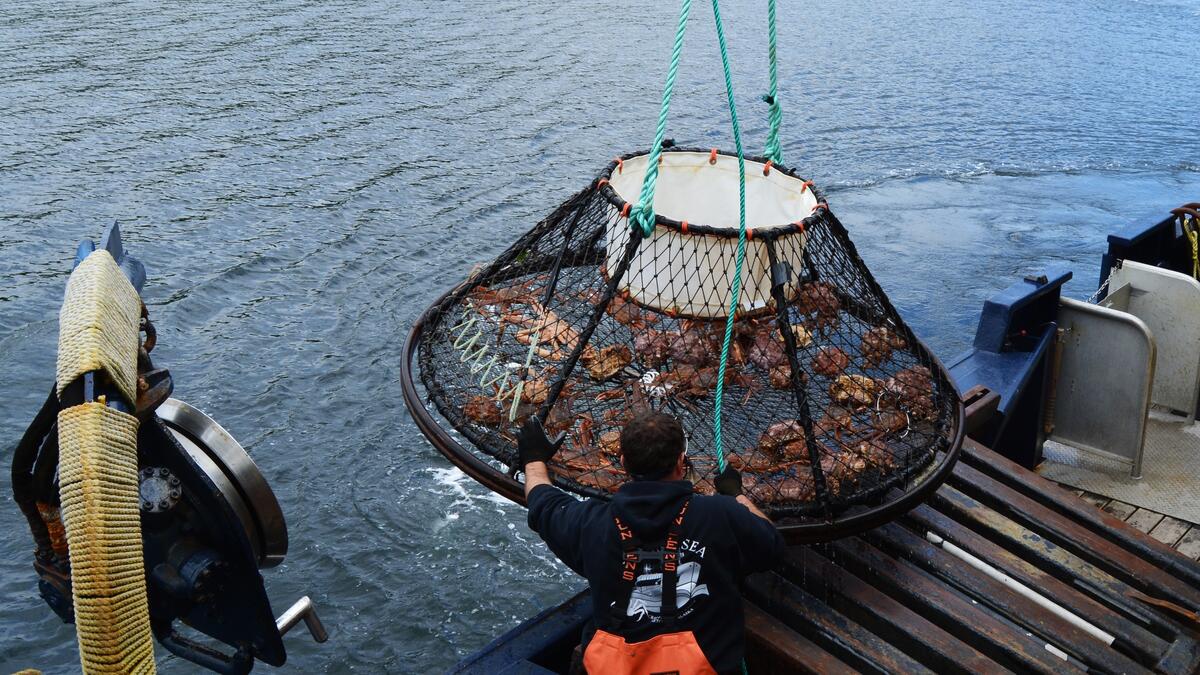Study sheds light on sustainable fishing management practices

Photo courtesy Shutterstock
Scientists Joshua Abbott and Bryan Leonard with Arizona State University's Julie Ann Wrigley Global Futures Laboratory and School of Sustainability recently published a paper that provides much-needed insight on sustainable practices for the management of fisheries across the globe.
Around 3 billion people rely on fisheries as their main source of protein, and 39 million people work in the fisheries sector worldwide. But this high demand has often been accompanied by severe overfishing and the destruction of natural ecosystems, depleting these vital natural resources at an alarming rate while jeopardizing livelihoods and sapping industry profits. Fisheries can suffer from management challenges that make it difficult for fishers to reap the benefits of investing in the fish stock instead of harvesting more today, and regulatory approaches to resolve the issue have often suffered from a lack of effective enforcement and have failed to align harvesters’ incentives with biological and economic sustainability.
A suite of innovative solutions known as “rights-based management reforms” have been implemented in many fisheries to address these problems. One rights-based policy, individual transferable quotas (ITQs), provides harvesters — typically vessel owners — with property rights to shares of a seasonal, regulator-determined quota and allows harvesters to trade these rights amongst themselves. By making fishers “shareholders” in the total quota, they also have an incentive to invest in sustainable practices that grow the stock, as it leads to long-term profitability.
But, like most solutions to complex issues, rights-based management reforms for fisheries do not come without potential problems. Abbott and Leonard’s paper, co-authored with Brian Garber-Yonts, a research economist at the National Oceanic and Atmospheric Administration (NOAA), examines these potential pitfalls.
The paper sought to dig into the claims of unequal distribution of the economic benefits of rights-based management reforms by comparing new data on payments to captains, crew, vessel owners and owners of harvest quota in the Bering Sea crab fisheries. This data was collected before and after implementing ITQs, offering a new model for collecting and analyzing data on distributional outcomes for other fisheries. This new data is important, as previous studies lacked the detail of data necessary to compare outcomes both within and between vessels simultaneously.
"Overall, we find several positive effects,” Abbott said. "The overall profitability of the fishing industry increased dramatically under ITQs, with more profit being earned per ton of harvest while ensuring compliance with sustainable harvest targets. We also found that captains and crew, which are often paid according to a share of vessel profits, saw their pay remain stable compared to their outside employment options in fields like construction. Inequality in pay across vessels also declined."
However, the study also noted some potentially negative effects.
"We found that the share of industry profits going to people that lease their quota, some of whom may no longer actively fish, has increased to roughly 50%. Consolidation of quota on the most efficient vessels has fueled the sustainable profitability of the industry, but it has also created a concentration of wealth that some may question given that fisheries are ultimately public resources."
These findings help decision-makers to understand the consequences of rights-based programs and to inform improved designs for these programs to mitigate the likelihood of inequality that could jeopardize the feasibility of these potentially beneficial policies. The data also aims to increase awareness of social and economic effects of rights-based management on fishermen and coastal communities that are affected by policy changes, but are also unfortunately usually excluded from the decision-making process.
As for the implications for the future and areas of needed improvement, Leonard said, "Our paper also underscores the need for more and better data collection in the future. Fully unraveling the distributional impacts of ITQs would require knowing exactly who owns what quota and where it is getting fished, which is something beyond the scope of our recent paper."
More Environment and sustainability

ASU to host new Global Coordination Hub
In a new partnership between the global research network Future Earth and Arizona State University, the Julie Ann…

A world full of plastic ... not fantastic
Editor’s note: This is the seventh story in a series exploring how ASU is changing the way the world solves problems.…

Team wins $10M XPRIZE Rainforest competition for novel solution
Several Arizona State University experts are on a team that created a new way to put a price on the rainforest in order to save…